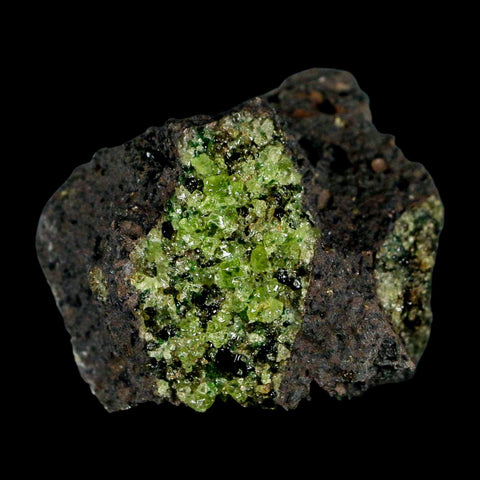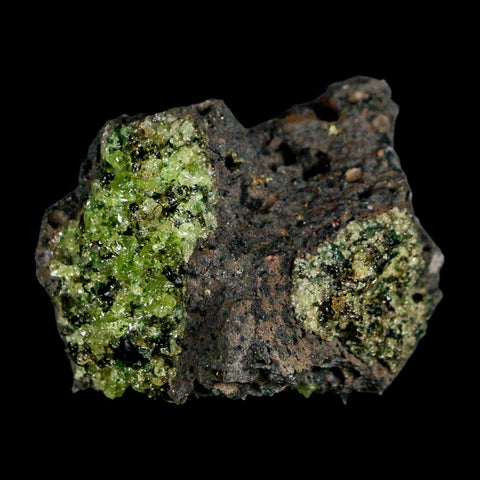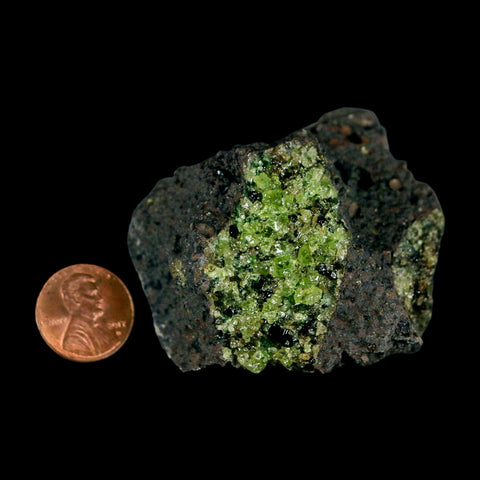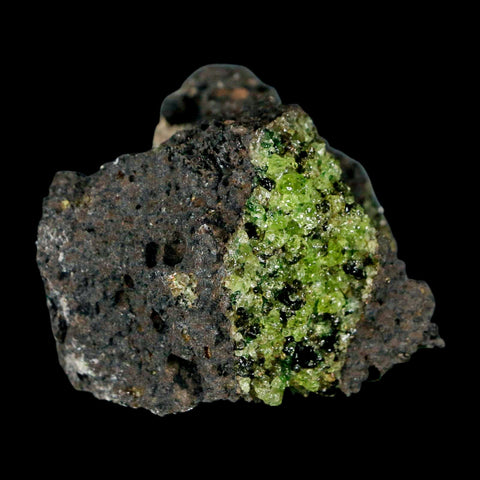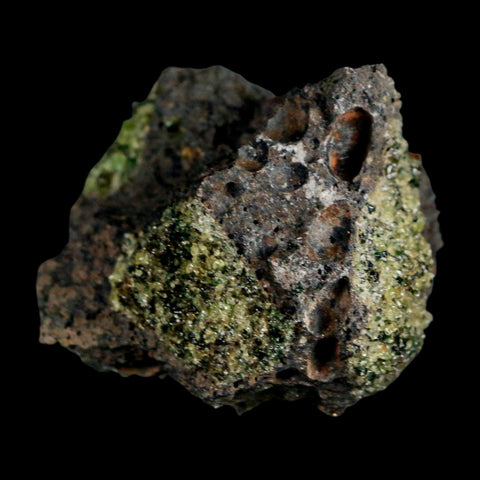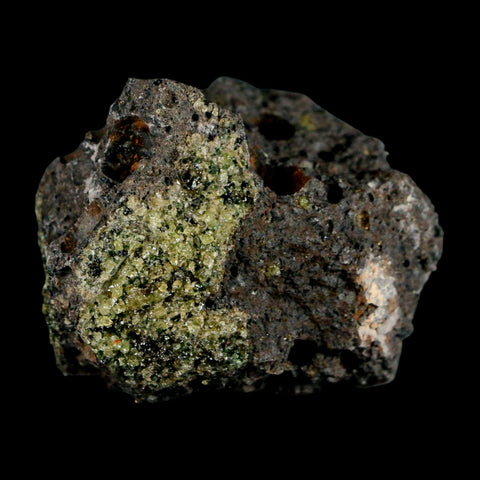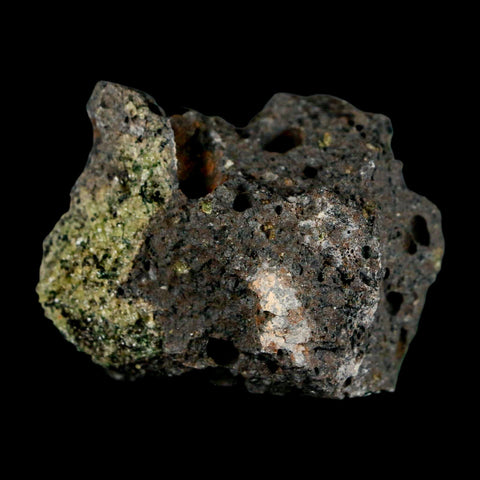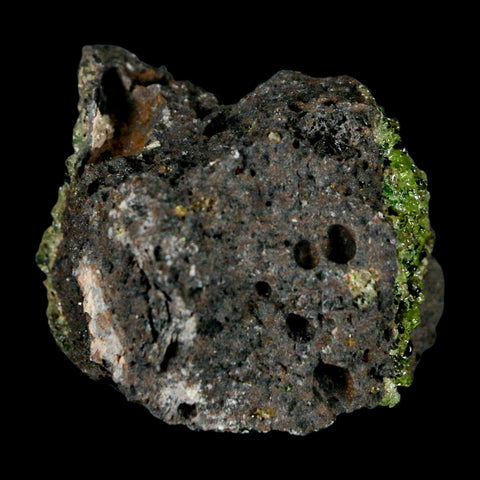2.3" Emerald Peridot Crystals, Chrome Diopside And Spinel On Volcanic Rock Gila, AZ
Location: Gila, Arizona
Weight: 6 Ounces
Dimensions: 2.3 Inches Long, 2.2 Inches Wide, 1.8 Inches Thick
The item pictured is the one you will receive.
Peridot is a gemstone that belongs to the olivine mineral group. It is a transparent green gemstone that is known for its vibrant color and clarity. Peridot is one of the few gemstones that occur in only one color, which is green. The intensity and shade of green can vary depending on the iron content within the stone. Peridot has been used in jewelry for thousands of years and has been prized for its beauty and rarity.
Peridot has a hardness of 6.5–7 on the Mohs scale, making it suitable for jewelry such as rings, earrings, necklaces, and bracelets. While durable enough for everyday wear, peridot is sensitive to heat and chemicals, so it should be handled with care to preserve its vibrant green color and clarity.
Chrome diopside, also known as Russian diopside, is a rare and captivating green gemstone belonging to the pyroxene mineral group. Its deep green color comes from chromium within its crystal structure. Typically found in igneous rocks such as kimberlites and basalts, chrome diopside is softer than many popular gemstones, making it more susceptible to scratches and wear.
Primarily sourced from mines in Siberia, Russia, where it was first discovered in the 1980s, chrome diopside has grown in popularity for its vivid color and affordability compared to other green gemstones like emeralds. Often faceted to enhance its brilliance, this gemstone is widely used in rings, earrings, necklaces, and bracelets, making it a favorite among jewelry designers and collectors worldwide.
Spinel is a mineral that belongs to the spinel group, which consists of minerals with the same crystal structure. It is composed of magnesium, aluminum oxide, and is commonly found in metamorphic rocks. Spinel is known for its vibrant colors, including red, pink, blue, purple, orange, yellow, green, brown, black, and colorless varieties. The red variety of spinel is often mistaken for ruby due to its similar appearance. Spinel has been used as a gemstone for centuries and has been prized for its beauty and durability.


